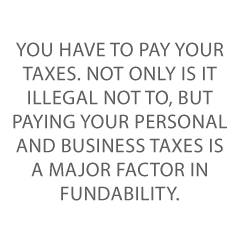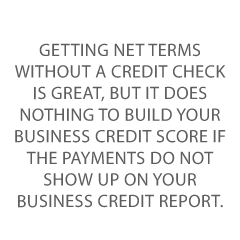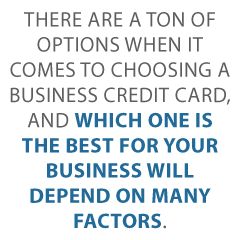Secret Startup Financing – is There Really Such a Thing?
Are you just getting started? The thrill of chasing a new business dream will always lead you to one rude awakening, you need money! But how are you going to get it? Here’s where secret startup financing comes into play. C’mon in, and we’ll show you.
Well-Known Kinds of Startup Financing
If you know people who’ve started businesses, often their financing came from places like:
- Using personal credit cards
- Using personal savings (i.e. “bootstrapping”)
- Home equity loans
- Conventional bank loans (often secured with collateral)
What About Not So Well-Known Kinds of Funding for Startups?
All these can work. But they all risk personal assets. But there are a lot of OTHER ways of getting startup money, where you don’t put your home or savings on the line.
Secret Startup Funding Tactics: the View from 20,000 Feet
You will need to give up something to get these kinds of startup financing. It can be:
- Business control
- Business ownership (i.e. equity)
- Your time and brainpower
- Paying higher interest rates than you would tend to see
If these are acceptable to you, then check out these 10 secret ways to get startup financing!
#10 Venture Capital
We start with venture capital funding. But keep in mind it won’t be a workable option for most businesses and industries. Venture capitalists give money to help build new startups. But only if the VCs believe a company has both high-growth and high-risk potential. These tend to be fast-growth companies with an exit strategy already in place. Venture capitalists often look to recover their investment in 3—5 years.
VCs will also, often, want to own a large piece of a company if not a controlling stake. This means in exchange for their money, they could be calling the shots. They want game-changing businesses. So straightforward businesses won’t be on their radar unless they’re shifting the paradigm. Never forget, you are giving up a part of your ownership in your business. VCs often want a larger share of your business than angel investors do. More on angel investors later.
Venture Capital: Terms and Qualifying
Venture capitalists are much more formal investors than angels. So a valuation of your business is often going to be necessary. Specific terms will be spelled out in your agreement with them. The Securities and Exchange Commission will also have requirements. It is best practices to consult with a lawyer well-versed in business law before you sign anything.
#9 Alternative SBA Loans
We continue with a kind of private investor loan, also called private lending. Private lenders tend to be funded by investors, or by banks, or both. Private lenders are in the business of taking funds from private investors. They make private business purpose loans with those funds. This often involves real estate. These can be hard money loans.
Alternative SBA Loans: Terms and Qualifying
Private lenders will be more creative, and investigative in qualifying income. They may be willing to overlook background flaws upon explanation. But hard money loans are often short term. Terms tend to be 6—36 months. They have a higher interest rate than traditional bank loans. So account for the higher interest rate when determining if a private investor loan is right for your business.
#8 Equity Crowdfunding
If you don’t mind giving up some of your business, then consider equity crowdfunding. Equity crowdfunding is a stock offering from a company not listed on stock exchanges. Equity crowdfunding has been around for less than 10 years. It’s not the same as rewards-based (which comes from places like GoFundMe).
Potential investors visit a funding portal website. There, they can explore different equity crowdfunding investment opportunities. Note: there are limits on how much capital an individual can invest based on their income and net worth. Equity crowdfunding gives investors a stake in your business.
Equity Crowdfunding: Terms and Qualifying
Equity crowdfunding tends to be covered by federal laws like the Securities Act of 1933, Regulation Crowdfunding (17 CFR Part 227), Regulation D Rule 506 (17 CFR § 230.506), and Regulation A+ (17 CFR § 227.100). Federal law can be complex. It’s not something you’ll learn just with a little Googling.
It is always best practices to consult with an attorney well-versed in federal law, specifically, securities and corporations when it comes to interpreting terms and qualifications. This includes any changes made to these aspects of the law in the future. Therefore, factor in the cost of a lawyer if you decide to go for equity crowdfunding.
And, it’s entirely possible that more regulation will hit this industry in the future.
#7 Reward-Based Crowdfunding
This is the type of crowdfunding you’re a lot more likely to have heard of. You can get money from the crowd for your business. Start with a service like Kickstarter. But make sure you read the fine print (always a good idea!). Many crowdfunding platforms make you give all the funding back if you do not make your goal by the end of the campaign. But Indiegogo has a flexible funding option.
Reward-Based Crowdfunding Details
Crowdfunding platforms will take a percentage of the donations. That’s how they make their money. Crowdfunding platforms may push to have you deliver on your promises. So you’ll have to manufacture a product or do whatever else your business is supposed to be doing.
Given how much social media we’re all bombarded with these days, it should come as no surprise, donors can become weary of crowdfunding pitches. You will do better if you start off with a substantial (as in, over 1,000 connections) social media following.
Reward-Based Crowdfunding Caveats
Crowdfunding tends to work best when donors can personally connect with a product or service. Straightforward businesses may not do so well. The kinds of businesses which do the best often associate with:
- Products not quite on the shelves yet, or
- Artistic endeavors
 Standard widgets or service-based businesses do not tend to attract brand ambassadors. They won’t tend to get donors too fired up. Because crowdfunding campaigns are time-consuming, it doesn’t make sense to try this form of funding unless you realistically feel your chance of success is better than 50%
Standard widgets or service-based businesses do not tend to attract brand ambassadors. They won’t tend to get donors too fired up. Because crowdfunding campaigns are time-consuming, it doesn’t make sense to try this form of funding unless you realistically feel your chance of success is better than 50%
Reward-Based Crowdfunding: Terms and Qualifying
Terms will differ depending on which platform you use. Check and make sure your platform of choice will allow your industry to work with them. For example, recreational cannabis use is legal in Massachusetts. But Kickstarter (for example) doesn’t allow fundraising for drugs and related paraphernalia.
Any major crowdfunding platform has a rules section, a FAQ, or ‘how it works’. Be sure to read such a section thoroughly so you know exactly what you’re getting yourself into.
#6 Peer to Peer (P2P) Lending
If you don’t mind investing time and potentially effort, then try Peer-to-peer lending. Peer-to-peer lending allows people to borrow and lend money without a financial institution. P2P platforms connect borrowers to investors faster and cheaper than any bank. These platforms check risk carefully and report on them to peer lenders. Hence your business might be listed on a P2P platform, but show a high risk. It would therefore not attract many lenders.
Peer to Peer: Terms and Qualifying
Terms vary, not only from platform to platform, but also among risk levels. The number of P2P platforms has changed in the past few years. Always check the specifics on any P2P platform’s website before committing yourself. Checking the Better Business Bureau or maybe Yelp reviews before getting started is a good idea.
#5 Online Lending
If you’re okay with paying potentially higher interest rates, and an investment of time investigating your options, online lending could work for you. For certain industries, online lending is one of the only ways to get money.
For example, medical cannabis is legal is most of the country, yet more traditional lenders are still less likely to approve a loan. But lenders that specialize in the cannabis industry (and similar hard to fund industries) are out there.
There are online lenders with over a decade in business. OnDeck dates back to 2006. And Quicken Loans goes back to 1985! As with many industries, a longer time in business is more likely to inspire confidence in a lender.
Online Lending: Terms and Qualifying
Terms and qualifications will vary. Read all the fine print with care. Check all companies with the Better Business Bureau or your local Chamber of Commerce. Always treat deals that seem ‘too good to be true’ with a healthy dose of skepticism.
#4 Private Grants
Grants will always require an investment of time. There are businesses which offer grant money. You can also check with your alma mater, or even the alumni division of your fraternity or sorority. That is, if you participated in Greek life during school. Check other organizations where you or a family member is a member of a fraternal organization like the Elks or the Moose. They may have grants IF your business is a nonprofit.
If you are a member of a protected class, like LGBTQ+, Asian, disabled, female, etc., then check Google but be mindful that there are scammers out there. Again, be sure to check the Better Business Bureau or ask your local Chamber of Commerce if you’re unsure. Terms and qualifications will vary from provider to provider and potentially from year to year.
#3 Federal Grants
Federal grants generally do not have to be paid back. For urban projects, try HUD (Housing and Urban Development). For rural projects, try the USDA (Department of Agriculture). Federal funding means paperwork . You often must show experience in what you are proposing.
Federal Grants: Terms and Qualifying
Grants have varying qualifications. They are VERY COMPETITIVE. Be sure to check information thoroughly! This includes due dates and any necessary paperwork. So beyond spending time, often you will also be gathering paperwork.
Some grants may offer preferences to businesses with minority, female, veteran, or disabled ownership. Grants often aren’t for a lot of money. So don’t use them as your sole/principle source of funding. But they can supplement other funding you get.
Make sure to do a rough cost-benefit analysis to see if it’s worth your time to apply to any particular grant.
#2 Local, City, and State Grants
Your local government also provides grants. Also try city and state websites. They’re often less restrictive than federal grants. Show you will help the community. Try to partner with a local business.
Local, City, and State Grants: Terms and Qualifying
Just like with federal grants, check all requirements and other information with care. You may need to be a resident of the state or city or county in question, or your business may need to be headquartered there. It never hurts to ask. Again, they tend to not be for a lot of money. A lot of effort for very little money may not be the best use of your time and attention.
#1 Angel Investing
Our #1 secret startup financing tactic is to use angel investing. In this instance, you’re giving up some of the equity in your business. But it’s often not control over basic decisions. Angel investors invest in small startups or entrepreneurs. Often, angel investors are among an entrepreneur’s family and friends. Yes, that can be Mom and Dad. The capital they provide may be a one-time investment to help the business get started. Or it can be an ongoing injection of money to support and carry the company through its early stages.
Angels are not covered by SEC standards for accredited investors. Angels could be friends or colleagues sitting on home equity. Or local professionals who are looking to invest. Consider people you know well and people you don’t know so well. Keep in mind, like with venture capital, you’re giving up part of your ownership in your business.
Angel Investing: Terms and Qualifying
Angels are informal investors so there aren’t any real terms. So technically, you do nothing to qualify. Although investors may (probably should) insist on a valuation of your business. No matter what, it’s always a good practice to get everything in writing.
Secret Startup Funding: Takeaways
Less conventional and not so well-known startup financing is out there. But you will have to give up something to get it, like time or business equity. No one but you can decide what will work best for you. And contact us today for information on startup financing sources that might not ask quite so much from you and your business.
The post Surprise! We Found 10 Secret Startup Financing Sources and Tactics appeared first on Credit Suite.



 Foundation
Foundation
 Standard widgets or service-based businesses do not tend to attract brand ambassadors. They won’t tend to get donors too fired up. Because crowdfunding campaigns are time-consuming, it doesn’t make sense to try this form of funding unless you realistically feel your chance of success is better than 50%
Standard widgets or service-based businesses do not tend to attract brand ambassadors. They won’t tend to get donors too fired up. Because crowdfunding campaigns are time-consuming, it doesn’t make sense to try this form of funding unless you realistically feel your chance of success is better than 50%





